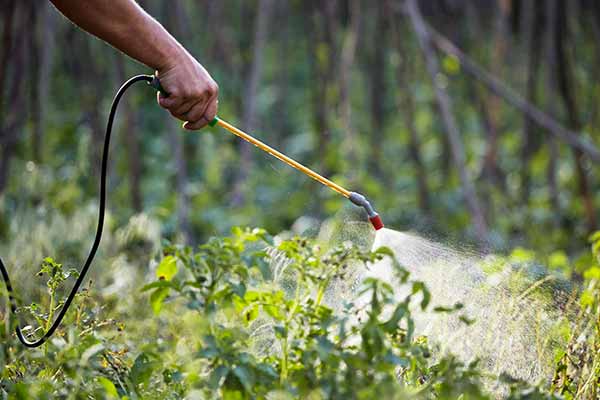
Horticultural oil is specially formulated for use on plants. It is a petroleum-based oil with an emulsifier added that allows it to mix with water. It kills scales, mites, aphids, whiteflies, and other soft-bodied pests by suffocation.
Horticultural oils are classified as dormant oils, summer oils, or superior oils. Dormant oils are the heaviest of the horticultural oils. Apply these oils during winter dormancy and before plants begin spring growth. Do not use dormant oils during the growing season unless the label specifically states that such use is safe. Bonide, Ortho, and Hi-Yield have products with these oils.
Summer oils are lighter than dormant oils and are formulated for use during spring and summer. The most refined of all are the superior oils, which are excellent for horticultural pest control in any season. Superior oil products allow greater flexibility in their use and have been tested at temperatures in the mid-90s with no damage to shrubs.
Certain soaps know, and ‘insecticidal soaps’ are effective at controlling insect pests. Insecticidal soaps are made from the potassium salt of oleic acid, which is present in high quantities in olive and other vegetable oils.
Insecticidal soap causes insects to dehydrate by physically breaking down the insect’s outer protective layer (cuticle). Several brands are available such a Safer Soap.
Another organic insecticide is neem oil. The active ingredient is extracted from a tree that grows in the tropics. It kills or repels many harmful insects, including aphids, mealybugs, cabbage worms, and can also be used to control fungal diseases.
Thorough spray coverage is essential when using oils and soaps. Since these products must contact the pest, apply to all plant surfaces, tops and bottom sides of leaves and stems from coating them thoroughly.
Another environmentally friendly product for controlling caterpillar pests, such as cabbage looper and the corn earworm, is Bt (Bacillus thuringiensis). Bt is an insecticide stomach poison for use only against caterpillar and is most effective they are young. The caterpillar must ingest the Bt for it to be effective. It stops feeding and will perish within several hours to days. Bt can be found under several brand names such as Dipel and Thuricide.
Though horticultural oils, soaps, and Bt products are less toxic than many insecticides, use them with caution. Please follow all label directions and safety precautions when applying them.
Please check out my blog ‘Gardening in Gwinnett’ at http://gardeningingwinnett.blogspot.com/
Timothy Daly is an Agricultural and Natural resource Agent with the University of Georgia Extension Gwinnett County. He can be reached at 678-377-4011 or tdaly@uga.edu

